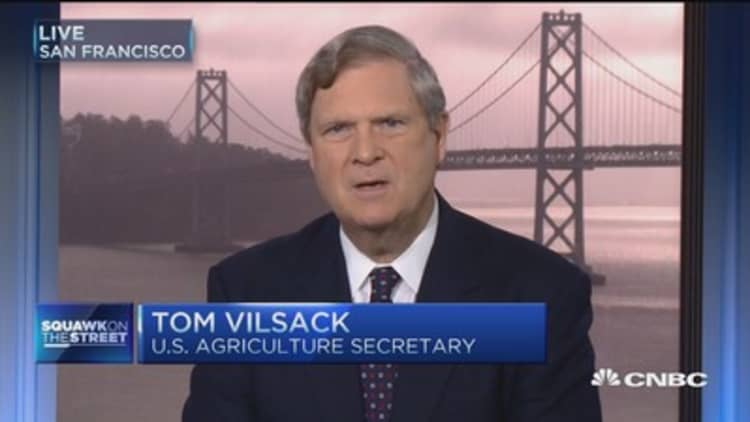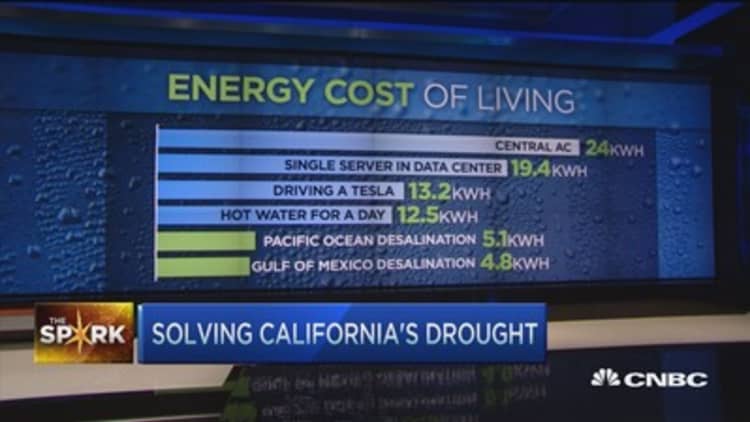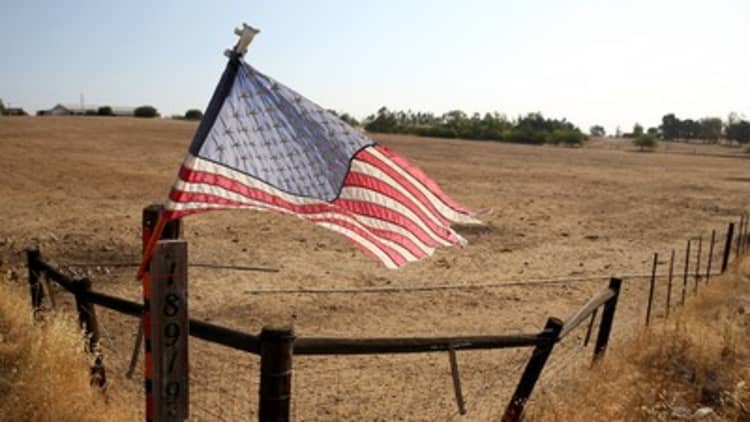



Water competition is growing, and companies need to learn to cope, according to the director of Deloitte Consulting's water practice.
Growing competition for water increasingly forces companies and governments to treat water as a far more precious resource than they have in the past, says Deloitte's Will Sarni. That means they need to develop technology and strategies for combating the financial losses they may suffer from shortages.
Sarni, who consults on water management strategy, said the planet is pockmarked with regions at risk of or already suffering from water shortages like those seen in California and the American West.
Governments and institutions have to move away from simply accounting for the price of water, and instead think about the importance of water to different points on their supply chain, he said. (Tweet This)
Read MoreAn energy investing idea that most people are missing
"Historically, companies have paid attention to the price of water and not necessarily the value of water to their business," Sarni told CNBC in phone interview. "And if you look at the price of water, it's not quite free, but it's low priced compared to its value. On a profit and loss statement, that barely shows up."
That approach will become untenable on a planet with a rising population and changing climate, he said. The good news, however, is that many companies already are taking steps to fix the problem.
"We have a pretty good track record of innovating our way out of resource constraints," he said.

Sarni said that food and beverage companies were some of the first to work with him—he has consulted Coca-Cola on water management issues, for example. Others that are trying to get in front of the water problem include companies such as SABMiller, which has worked with the Nature Conservancy to protect freshwater sources in Latin America.
Governments can also act. Take Singapore: The island nation gets a lot of rain—on average, it rains there 178 days per year. But it's a crowded country, and there is little space to catch and store water, so demand still exceeds supply. Singapore has been successful in implementing water treatment and recycling programs, and water has now become an export business for the country.
Read MoreThe most expensive US cities to buy a beer
Israel has built an industry in desalination to tackle its own water scarcity problems, and it has exported its expertise to California. Both regions have become "water technology hubs" as a result, Sarni said.
Private and public sector institutions face three different types of water-related risk, he said.
First, there are the physical risks of water: The risk that a region may lack sufficient supply, or that the local water supply might be of poor or unstable quality. For example, Sarni noted in one of his reports that a large beer company suffered a loss on the order of $3 million when a drought stopped business in one of its factories in Ghana.
Read MoreCalifornia landowners resist efforts to monitor groundwater
Second, local water regulations or regulatory changes might challenge some companies' ability to do business.
Finally, companies face risks to their reputation—they need to consider how their use of water will be viewed by the communities around them.
"You can quantify the business value at risk from those three dimensions, and that drives companies to develop water stewardship strategies and make investments to manage that risk," Sarni said.


